Read AssureGuaranteed Formula for
Reading Success with PhonicsbyEverett Ofori,MBA CCB Publishing
CCB Publishing
British Columbia, Canada Read Assure: Guaranteed Formula for Reading Success with Phonics Copyright 2010 by Everett Ofori
ISBN-13 978-1-926585-84-0
First Edition Library and Archives Canada Cataloguing in Publication
Ofori, Everett, 1963
Read assure [electronic resource] : guaranteed formula for reading success with phonics /
written by Everett Ofori 1st ed.
Electronic monograph in PDF format.
ISBN 978-1-926585-84-0
Also available in print format.
1. Reading--Phonetic method.
2. English language--Orthography and spelling--Study and teaching (Elementary).
I. Title.
LB1573.3.O36 2010a 372.46'5 C2010-903796-0 Illustrations: Ahn Soo Kyoung Extreme care has been taken to ensure that all information presented in this book is accurate and up to date at the time of publishing. The publisher cannot be held responsible for any errors or omissions. Additionally, neither is any liability assumed for damages resulting from the use of the information contained herein.
All rights reserved. No part of this publication may be reproduced, stored in a retrieval system or transmitted in any form or by any means, electronic, mechanical, photocopying, recording or otherwise without the express written permission of the publisher, except in the case of brief quotations embodied in critical articles and reviews. Printed in the United States of America and the United Kingdom. Author contact: everettofori@gmail.com Publisher: CCB Publishing
British Columbia, Canada
www.ccbpublishing.com
Dedicated with gratitude to my brother,
Chief Stephen Abraham. Other books by Everett Ofori Succeeding From the Margins of Canadian Society:
A Strategic Resource for New Immigrants, Refugees
and International Students
Written by Francis Adu-Febiri and Everett Ofori
2009 ISBN 978-1-926585-27-7 Contents Much gratitude to Ms. Yuko Bernard, of Bernard English School, Japan, for giving me the opportunity to share my phonics ideas with young learners at the Bernard schools (Ibaraki). The success of this program is evident from the numerous young people, who through this program, have found joy in reading and are therefore able to approach their study of English with something akin to ecstasy.
Many thanks also go to Mr. Frank Pridgen, Manager of Bernard English Schools, who has been a champion of phonics instruction and has provided invaluable comments to improve this book. In addition, all the teachers who have wholeheartedly adopted this book for use in their classes deserve commendation and their experiences and comments regarding how to make this book more useful to their young charges will always be welcome. Finally, any errors or omissions in this book remain solely the responsibility of the author. Sincerely, Everett Ofori Why phonics? Phonics allows new readers to link sounds with letters. Children as young as four can be taught to read using phonics.
When taught right, the parent or instructor will be pleasantly surprised at how quickly a child can catch on to reading in English. Many childrens books in English contain very difficult words: Rumpelstiltskin by the Brothers Grimm; Mr. Fitzwarren in Dick Whittington; Brobdingnag in Jonathan Swifts Gullivers Travels. You will be amazed that once children have acquired the rudiments of phonics they can manage to read, sometimes with just a little help, such difficult looking words. Children have no difficulty at all understanding the concept of linking each letter with a particular sound. It is but a short leap for them to extend this knowledge from short two and three letter combinations such as ba and na to banana or can and did to form candid.
It is also liberating for a kid to understand, for example, that fan is made up of three sound units: /f/ /a/ /n/. Soon enough there will be exceptions for the child to learn but these exceptions will be welcomed by any child who is continuing to mature mentally and thus is able to grasp subtleties and challenges to previously-learned conventions! Children, even as young as four and five, based on my experience of teaching children that young, possess the capacity to understand that, in some cases, two letters instead of one represent a sound unit. For example, in the case of short, /sh/ represents one sound unit while /or/ represents another sound unit and /t/ represents yet another sound unit. High frequency words There are a number of words that appear so frequently in English that learners need to know them as soon as possible. These words can also be taught through phonics but they are so important that they should be drilled into the minds of learners both through repetition and phonics. High frequency words that need to be drilled into learners through frequent exposure,including spelling, reading, writing, and phonics.
| The | It | Who |
| This | It's | What |
| That | Him | Where |
| These | Her | Which |
| Those | She | When |
| There | He | Why |
| Then | Are | Whose |
| Were | While |
| You |
| Your |
| Was |
| How |
One method that has been found effective is to list a group of high-frequency words on a board and have the learner repeat after the instructor.
High frequency words that need to be drilled into learners through frequent exposure,including spelling, reading, writing, and phonics.| The | It | Who |
| This | It's | What |
| That | Him | Where |
| These | Her | Which |
| Those | She | When |
| There | He | Why |
| Then | Are | Whose |
| Were | While |
| You |
| Your |
| Was |
| How |
One method that has been found effective is to list a group of high-frequency words on a board and have the learner repeat after the instructor.
When the learner encounters any difficulty the phonics elements are sounded out by the reading coach. The words should not always be presented in the same order otherwise the learner will not really learn to recognize them but simply rely on memory, making it difficult to read them when these words are encountered in other settings. When a learner has difficulty with WHO for example, break it down as follows: /wh/ /o/ and sound them out separately for the learner to follow. Likewise with WHICH one might sound out /wh/ /i/ /ch/. Pronunciation note: To / Do /Me In the subsequent pages: To and to are words in their own right and should be pronounced as follows: The girl is going to school. To- (with the hyphen), however, indicates that this sound unit might be connected to another sound unit.
Read as in: Toronto. Thus, do as in Do it for me; but do- as in Donut. Me as in Give it to me. But me- as in Memo.Spelling Convention This book uses American spelling convention, so you will see "color" instead of "colour" and "favor" instead of "favour." This is simply for the purpose of consistency and does not reflect preference of one convention over the other. Reading coaches, instructors, and parents would do well to expose children to reading materials from different English speaking worlds and to make children aware of these subtle differences.
Next page
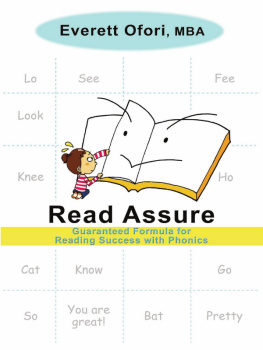

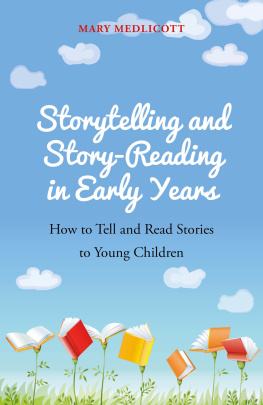

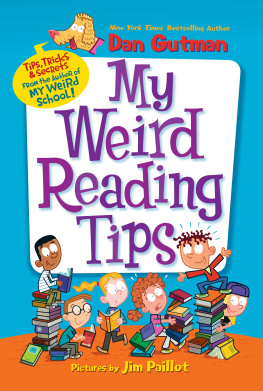
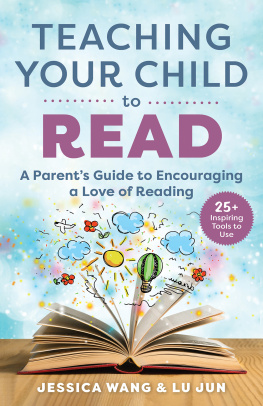
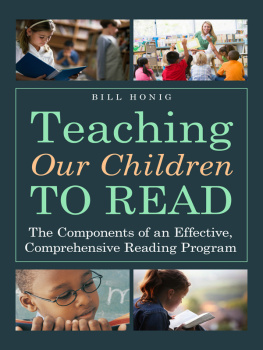
 CCB Publishing
CCB Publishing